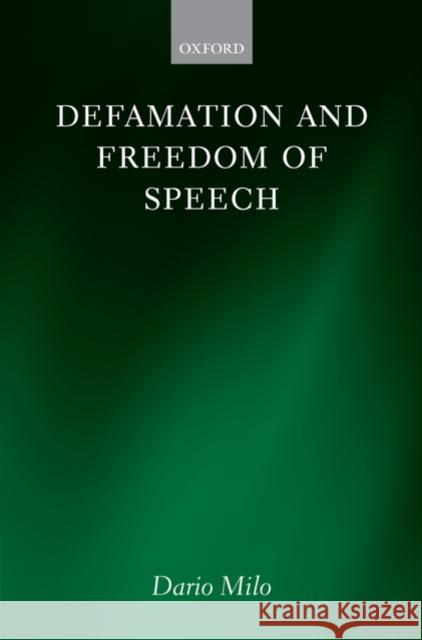Defamation and Freedom of Speech » książka
Defamation and Freedom of Speech
ISBN-13: 9780199204922 / Angielski / Twarda / 2008 / 270 str.
The law of defamation contemplates the clash of two fundamental rights; the right to freedom of expression, including freedom of the media, and the right to reputation. The rules of defamation law are designed to mediate between these two rights. Defamation and Freedom of Speech argues that fundamental rules and procedures of defamation law need to be reformed to take into account the dual importance of public interest speech, on the one hand, and the right to human dignity on the other. In particular, the presumptions that defamatory allegations are false and have caused damage, the principle of strict liability, and the availability of punitive damages, cannot survive constitutional scrutiny. The remedies available in defamation cases should be reformed to reflect the importance of dignity to the claimant, and the free speech interest of the public in receiving accurate information on matters of public interest. Finally, a number of procedural and structural obstacles to claimants and defendants, such as the absence of legal aid, need to be revisited in order for the rights to free speech and reputation to be meaningfully celebrated through the law of defamation.











